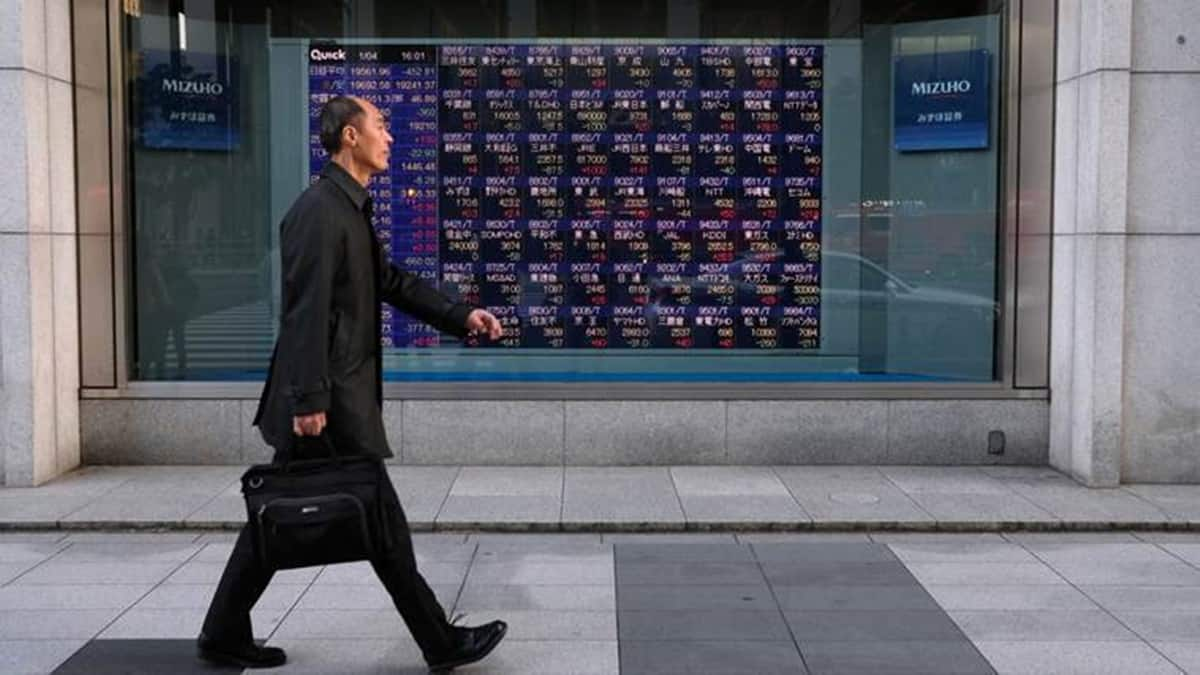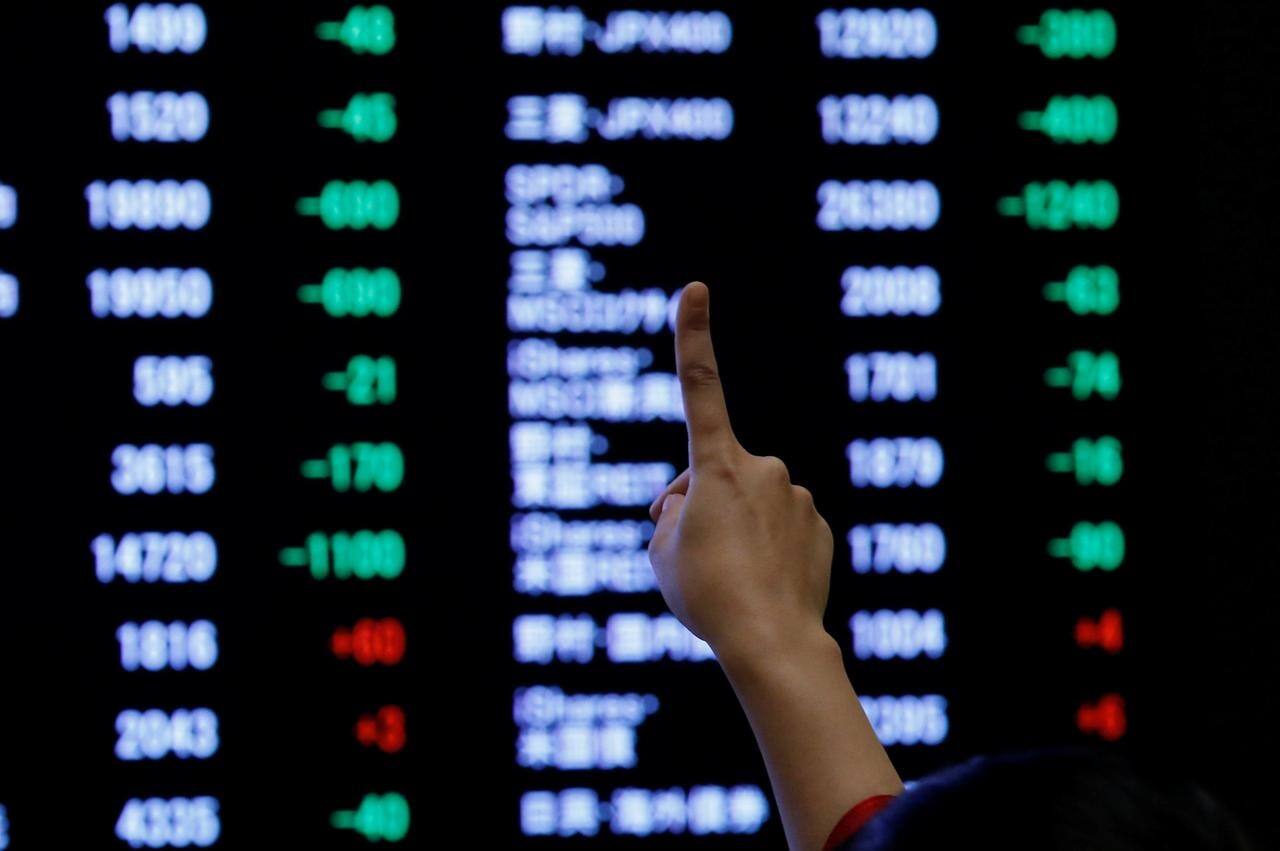World stocks and oil prices battled to pull out of a four-day slide on Thursday as deeply inverted bond yield curves and choppy currency markets underscored the simmering concerns among investors about economic stagnation next year.
Signs of China relaxing its COVID curbs had sent Hong Kong’s Hang Seng up more than 3% overnight and hoisted the yuan to a 3-month high, but it was all much more subdued in Europe.
Benchmark government bond yields also ticked higher after hitting their lowest levels in months, in the run-up to a raft of data and major central bank meetings next week, including the US Federal Reserve, the European Central Bank and the Bank of England.
Also read: Markets Wrap Up – 8 December: Stocks rise, rupee falls; Asia, Europe markets, Gold, Crude, Crypto updates
“Everyone is just waiting to see what comes out in terms of the economic numbers and the central bank meetings next week,” said Close Brothers Asset Management’s Chief Investment Officer Robert Alster.
“There is also China,” he added, referring to the country’s efforts to relax coronavirus curbs. “It is really happening quite quickly now… So it could be pretty beneficial for 2023 as long as it doesn’t stoke any more inflation.”
Global bond yields, which move inversely to prices, have tumbled in recent weeks on signs that the prospect of recessions will slow the rise in interest rates.
Comments from ECB officials this week saying euro zone inflation is probably near its peak has bolstered hopes that it will slow its hikes to 50 bps from 75 bps previously at its Dec. 15 meeting. Both the Fed and BoE are expected to do the same at their respective meetings.
Yet many analysts think the sharp drop in euro zone yields has perhaps gone too far, given that inflation is still in double digits and the ECB is set to raise rates to at least 2% next week.
Germany’s 10-year bond yield, seen as the benchmark borrowing cost for the bloc, was up 1 basis point on Thursday at 1.795%. It hit a two-month low of 1.788% on Wednesday albeit it is still roughly 200 bps higher for the year.
“We are still at a very high level of inflation in the euro zone,” said Camille de Courcel, head of European rates strategy at BNP Paribas Markets.
Also read: Nifty, Sensex snap 4-day losing streak, PSBs soar; fear of slowdown turns markets volatile, traders eye Fed
De Courcel expects a 50-bps rate hike from the ECB next week, but there “is still a risk that they deliver a 75”.
The yield on 10-year Treasury notes was up 5.4 basis points to 3.462%, while yield on the 30-year Treasury bond was up 3.6 basis points to 3.450%.
The two-year US Treasury yield, which typically moves in step with interest rate expectations, was up 3.9 basis points at 4.295%.
BULLS IN THE CHINA SHOP
In the currency market, the US dollar chopped around as traders weighed which way to go from here. It initially dipped in Europe but recovered to peg the euro back to $1.0495 and sterling to $1.2170, down 0.3% on the day.
US monthly consumer inflation is also due next week, a day before the Fed’s policy meeting on Dec. 14, and could be pivotal in setting longer-term expectations for monetary policy.
“US CPI is the one data release that seems to really matter for broader dollar direction at the moment and, until we got those central bank meetings and one key monthly US data release, not a great deal is happening,” RBC currency strategist Adam Cole said.
Asia’s actions had been far more thrusting after Chinese and Hong Kong media reported that further relaxations of COVID rules are being considered.
Macau’s casino operators hit the jackpot surging 9% and taking their gain this quarter to more than 40%.
Hong Kong’s Hang Seng Index climbed more than 3% while China’s tech giants Alibaba and Meituan jumped 6% each.
“While it could be a bumpy journey over next few weeks, China is ready to move on from COVID in one to two quarters,” said Wenli Zheng, portfolio manager of the China Evolution Equity Strategy at T. Rowe Price, adding that Chinese stocks could be the bright spot in 2023.
Among the main commodities, oil found its footing after a four-day drop that had taken it into the red for the year.
Brent crude rose 29 cents, or 0.4%, to $77.46 a barrel by 0905 GMT, while US West Texas Intermediate (WTI) crude gained 73 cents, or 1%, to $72.74.
Back in early March, shortly after Russia’s invasion of Ukraine, Brent had been at almost $140 a barrel, which was up nearly 80% for the year at the time.
Traders put Thursday’s modest lift down to China’s COVID steps and the fact that at least 20 oil tankers now face delays in crossing to the Mediterranean from Russia’s Black Sea ports following new European sanctions.



